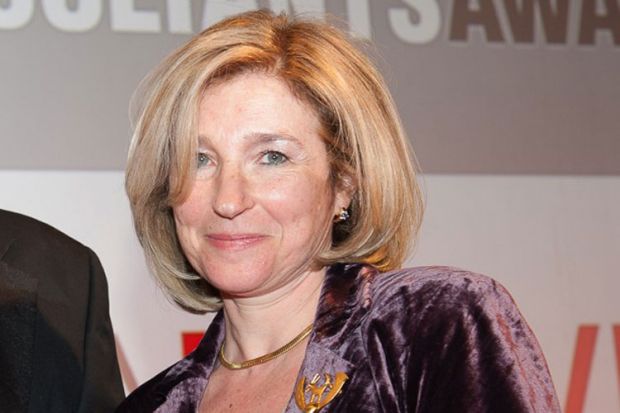Source: University College London (UCL)
An academic has spoken of her “shock” and “shame” that communication is not one of the “eight great technologies” earmarked as priorities for investment by the government.
Polina Bayvel, professor of optical communication and networks at University College London, said the government had overlooked the potential of such technologies to overhaul public services such as health.
Speaking at a Westminster Higher Education Forum event about implementing the government’s Science and Innovation Strategy, Professor Bayvel said that communication technology was a “glaring omission” from the policy launched in 2013 by David Willetts, the science and universities minister at the time.
“Communication underpins all great technologies; it underpins your life in every way possible,” she said at the event on 29 January.
“[It is a] shock and shame that in the [United Nations International]Year of Light [and Light-based Technologies], in the country that invented optical fibres, communications does not feature in the eight great technologies,” she added.
The technologies singled out for a share of £600 million in funding as part of the government’s industrial strategy include synthetic biology, robotics, satellites and advanced materials.
Professor Bayvel said that satellites carry just 1 per cent of all data whereas optical fibres carry the remaining 99 per cent. She added that developing communication technologies would be vital to managing the amount of data that will be generated in the years ahead.
Arguing that more investment in the field could “transform” UK infrastructure, she described how video calling could cut operational costs in the NHS. “But [the government] do not see these applications and do not encourage the necessary research nor the development.”
Tony McBride, director of the Royal Society’s Science Policy Centre, said that to be successful, the eight great technologies need funding for the long term and must feature in regional and national science strategies. “It is important the funding is not spread too thinly,” he said.
Register to continue
Why register?
- Registration is free and only takes a moment
- Once registered, you can read 3 articles a month
- Sign up for our newsletter
Subscribe
Or subscribe for unlimited access to:
- Unlimited access to news, views, insights & reviews
- Digital editions
- Digital access to THE’s university and college rankings analysis
Already registered or a current subscriber? Login





